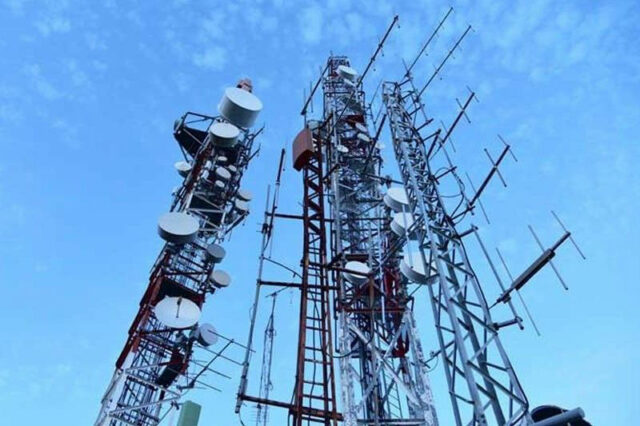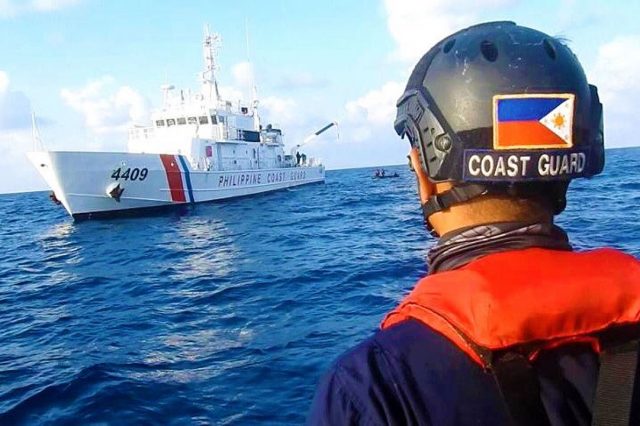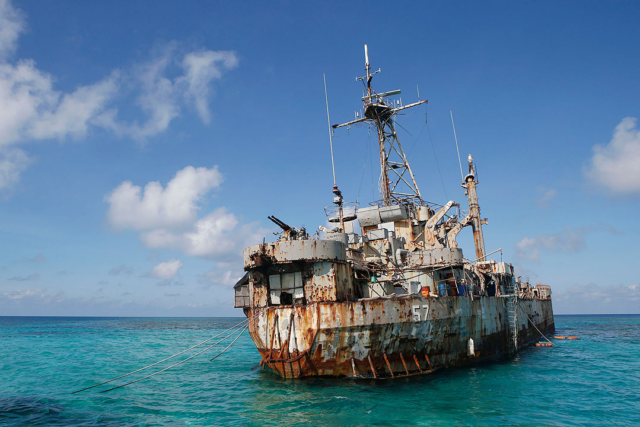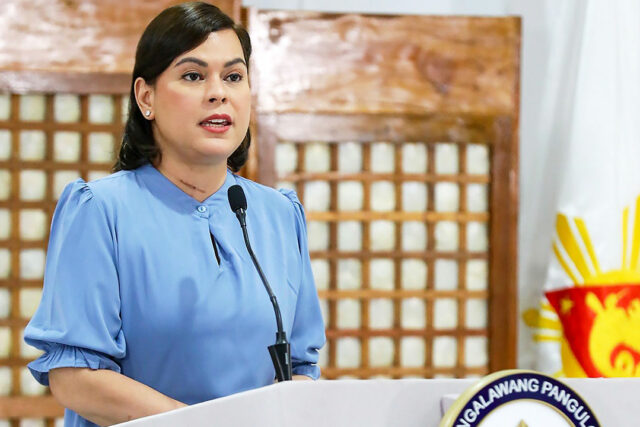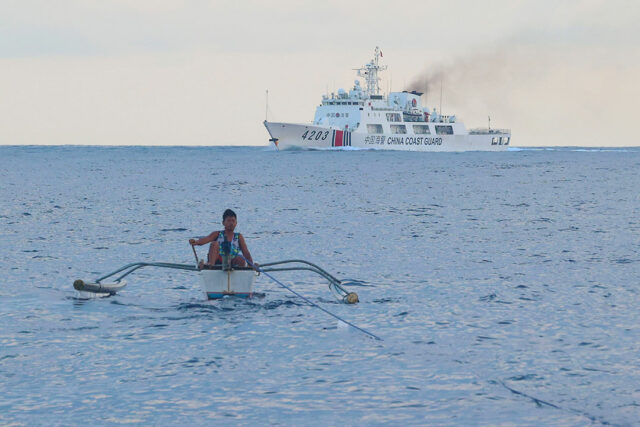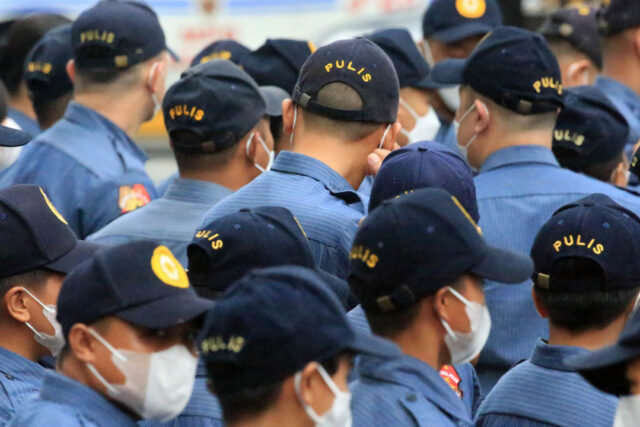THE PHILIPPINE military chief on Wednesday said bolo-wielding Chinese Coast Guard (CCG) men were behind the June 17 aborted resupply mission for Filipino troops stationed at Second Thomas Shoal in the South China Sea.
Combined forces from China’s People’s Liberation Army Navy, coast guard and maritime militia worked together to stop the delivery of food and other supplies, with Chinese rigid hull inflatable boats ramming the rubber boats of the Armed Forces of the Philippines (AFP), chief Romeo S. Brawner, Jr. told a news briefing in Puerto Princesa.
He said Chinese forces aboard the inflatable boats were holding bolos while they were going after two AFP rubber boats trying to deliver supplies to BRP Sierra Madre, a World War II-era ship that Manila grounded at the shoal in 1999 to bolster its maritime claim.
The six vessels deployed by the AFP for the mission included a civilian vessel and escort ships. Philippine Navy officers fought back using their “bare hands,” Mr. Brawner said.
“With their bare hands, they were pushing away the rigid hull inflatable boats of the Chinese Coast Guard,” he said in mixed English and Filipino. “They were preventing the Chinese Coast Guard from hitting them.”
“Despite the absence of weapons to defend themselves, they still fought.”
The Chinese Embassy in Manila did not immediately reply to a Viber message from local journalists seeking comment.
Seaman First Class Underwater Operator Jeffrey Facundo of the Navy’s Naval Special Operations Group, who was on board one of the Philippine military’s rubber boats, lost his right thumb after a collision with a Chinese inflatable boat, Mr. Brawner said.
The Philippine Coast Guard (PCG) rescued Mr. Facundo, who received a wounded personnel medal on Wednesday, in an emergency medical evacuation.
Mr. Brawner said personnel from the Chinese inflatable boats illegally boarded another rubber boat of the AFP, pointed bladed weapons toward AFP soldiers and started looting them.
“This is the first that we saw the China Coast Guard armed with bolo, spears and knives,” he added.
He said the firearms of the Filipino soldiers were stuffed inside gun cases along with food and other supplies.
The Philippines on Wednesday denounced what it called “illegal and aggressive” actions in the South China Sea (SCS) after a Chinese vessel collided with a Philippine ship that led to a Filipino navy officer getting hurt.
China should avoid actions that would endanger sailors and vessels in the South China Sea, the Philippines’ Department of Foreign Affairs (DFA) said in a statement. It added that peace could not be achieved if China’s words contradict its behavior in the disputed waters.
‘UNPROFESSIONAL CONDUCT’
“In line with the Philippines’ commitment to pursue peace, the department has been exerting efforts to rebuild a conducive environment for dialogue and consultation with China on the South China Sea,” the agency said.
“This cannot be achieved if China’s words do not match their actions on the waters.”
A Philippine supply ship dangerously approached a Chinese vessel and collided with it after it illegally intruded into waters near Second Thomas Shoal in the South China Sea on June 17, the Chinese Coast Guard said on Monday.
Manila has called the claim “deceptive and misleading.”
The Philippines expects China to refrain from behavior that would risk the safety of personnel and vessels, the DFA said.
It also urged China to respect Philippine sovereignty and its jurisdiction in its own waters.
The DFA said the Philippine Navy sailor suffered “serious injury” after what the country’s military called on Tuesday “intentional-high speed ramming” by the Chinese Coast Guard during the resupply mission.
It said the Chinese Coast Guard’s “continued aggressive behavior and unprofessional conduct towards a legitimate humanitarian mission is unacceptable.”
Philippine officials said China disrupted a military mission to deliver food and other supplies to a handful of Filipino soldiers living on the rusting BRP Sierra Madre.
China’s coast guard disputed this and said the navy vessel deliberately and dangerously approached a Chinese ship in an unprofessional manner, forcing it to take control measures such as “warnings and blockades, boarding inspections and forced evictions.”
Second Thomas Shoal has been a flashpoint in recent months between the countries. The atoll lies within the Philippines’ 200-nautical mile maritime zone, which China also claims as its own.
China claims almost the entire South China Sea, including parts claimed by the Philippines, Vietnam, Malaysia and Brunei.
A United Nations-backed tribunal in the Hague in 2016 voided China’s sweeping claims for being illegal.
The US State Department called the incident the latest in a series of Chinese “provocations” to impede supplies from reaching Philippine soldiers stationed at BRP Sierra Madre.
Canada and United Kingdom also condemned China’s actions, while France and Japan expressed concern over the incident.
Manila has filed 163 diplomatic protests against China under the government of President Ferdinand R. Marcos, Jr., Foreign Affairs spokesperson Ma. Teresita C. Daza told reporters in a WhatsApp message on Wednesday. Thirty protests were filed this year.
“We reiterate our call for China to adhere to international law, especially the United Nations Convention on the Law of the Sea and the 2016 arbitral award, and respect the Philippines’ sovereignty, sovereign rights and jurisdiction in our own waters,” the DFA said.
“I strongly demand that China cease these provocative actions immediately and respect our sovereign rights,” Senate President Pro-Tempore Jose P. Estrada, Jr. said in a statement. “Our government will take all necessary measures to protect our people and uphold our national interest.”
In a separate statement, Senator Maria Lourdes S. Binay-Angeles called on the Chinese Coast Guard to exercise restraint when sailing through the disputed waters.
“We will continue to stand firm in our resolve to protect our people and our sovereignty. The safety and well-being of our citizens will always be paramount,” she said. — Kyle Aristophere T. Atienza and John Victor D. Ordoñez with Reuters

